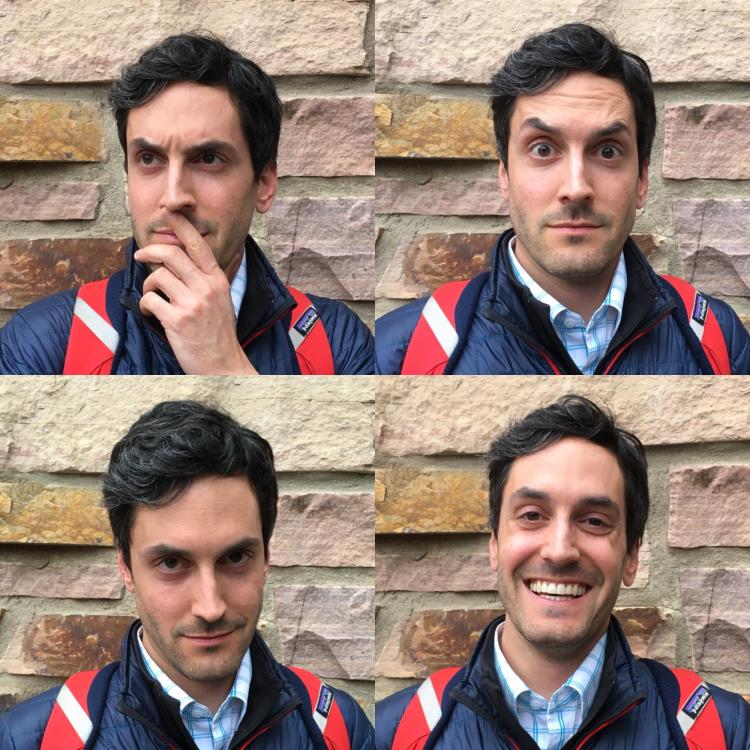This week I had the distinct pleasure of sitting down with Dr. Dan Larremore. Dan is passionate about cultivating a community within our department, excited about activism, and enthusiastic about his research, among many other things. What is written below does not capture the whole story. If you see Dan around campus, “nerd snipe” him to start a connection!
 What is your path in getting to CU Boulder?
What is your path in getting to CU Boulder?
As an undergraduate, Dan didn’t know that his professors were not only teachers, but also researchers. After graduating, Dan worked in industry and began applying to law school, only withdrawing his applications when a family friend reminded him that going to law school meant becoming a lawyer. The family friend set him up with his son, an applied mathematics PhD candidate. The conversation inspired Dan to apply to the CU Boulder MS program, which turned into a PhD when Dan learned what it meant to be a researcher. After graduation, upon the encouragement of Aaron Clauset, Dan became a postdoctoral fellow at Harvard Public Health, and then an Omidyar fellow at the Santa Fe Institute before joining the Department of Computer Science and the BioFrontiers Institute this August.
What are your hobbies?
Dan has recently adopted an appreciation for running, enjoys cycling, and is learning how to play the game Go. Some of his favorite authors are Denis Johnson, Joan Didion, and John Steinbeck. Dan is also hoping to join a volleyball team and start a band.
What advice can you share with us?
If you don’t feel like you’re on “the” track, it’s okay. There are many paths in academia, do not feel discouraged if yours is different. Keep your eyes open for opportunities, and be ready to jump on them when they come up. It’s also okay to change course: it’s important to make a sustained effort in an area, but it’s also important to know when to walk away if it’s not good for you. Science is done by humans, and is therefore social. When we write papers, we are communicating with other people. This means that we should invest time in being a human. Acknowledge that we are not paper producing automata by organizing a happy hour with the lab next door, having fun, and joking around. When we are better humans, it makes the department and institution better.
What are three improbable facts about you?
Dan taught math at a New Mexico State Penitentiary for two years to men that were confined to their cell for twenty hours a day. This experience has lead him to develop very strong opinions about criminal justice reform.
After breaking his leg during a ski race, Dan didn’t walk for six months. During this time, Dan experienced the help and love of friends, acquaintances, and strangers. It changed his perspective on how people support and care for one another in times of need.
There are certain things that Dan takes seriously, and certain things that he doesn’t take seriously at all. He believes in a healthy amount of irreverence, and one of his outlets of this irreverence is through his official ID photos. Ask to see his driver’s licenses to see a mustachioed and stoic Dan.
Icebreaker suggestions:
Looking for an excuse to start a conversation with Dan? Try “nerd sniping” him (to understand this phrase, google “XKCD Nerd Snipe”).
Next week The Neural Network will spotlight a student that I’ve asked Dan to suggest. Stay tuned!

